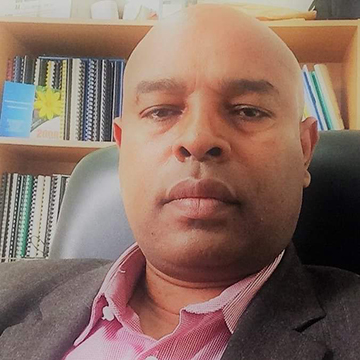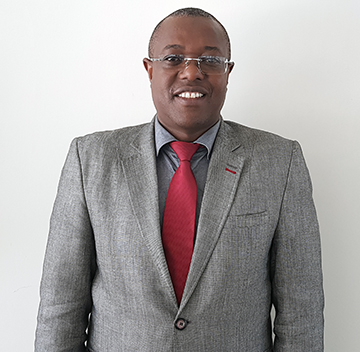News & Events
Ethiopian postgrads prepared for their PhD journey
Unisa’s Ethiopia Regional Learning Centre (RLC), housed in the College of Graduate Studies (CGS), hosted an experience-sharing programme on 29 May 2021. The programme was aimed at giving newly admitted students the confidence that the PhD journey is a manageable venture to undertake.
Apart from the various support services that it provides to students, the Ethiopia RLC designed this important event to give the new students some idea of what lies ahead by listening to the experiences of PhD graduates. The programme was also meant to encourage students to be aware of what is expected of them and to be more mindful of what it entails to embark on one’s PhD studies; in effect, it is meant to assist them on what it takes to be successful.
Two recent PhD graduates from Unisa shared their unique experiences in an interesting and beneficial session.

Dr Tilahun Girma Argaw
A clear vision is key
One of the speakers was Dr Tilahun Girma Argaw, who is the Principal of Abamela Consulting, a local development consulting firm established in 2006. Tilahun earned his PhD in the field of Development Studies from Unisa in 2020. In the session, he spoke about the importance of having a clear vision and objective when writing your proposal, which is the foundation of the study. “I must emphasise that you will need to work hard, focus, pay attention to your time management and make the PhD project a priority,” said Tilahun. “It is good to develop a positive relationship with your supervisors who will be critical friends and important resources in the research journey. As PhD students you must also remember to show appreciation to your families for their understanding and patience during this time.” He also advised that students keep record of their resource materials for the PhD project on different devices and on the cloud to ensure that data is not lost.
Motivate from within
The other speaker was Dr Titus Michael Lyaruu, an information manager and archivist with 15 years’ experience in knowledge management. Currently he is the Head of the Archives and Records Management Unit of the Knowledge Services at the United Nations Economic Commission for Africa. Lyaruu graduated in the field of Information Science in 2021. In his session, he mentioned that individuals have different reasons for pursuing their PhD, and that it is therefore important to be intrinsically motivated. He also reminded students to be self-disciplined.
In sharing his experiences, Lyaruu said his PhD study journey had not been easy, as he faced many difficult times and challenges such as changing his topic, a lack of availability of study leave, difficulty in the data collection process and having to travel regularly. However, he shared that reorienting the problems has helped him to fulfil all the requirements.

Dr Titus Michael Lyaruu
“I advise you to record every reference immediately after using it,” said Lyaruu. “More importantly, you should ensure there is clear and accurate communication between you and your supervisor. You should also inform your supervisor of any challenges you may be experiencing. Furthermore, studying for a PhD will require of you to change your habits; for instance, you will have to ignore some friends for a while and even time with the family will be limited.”
Lyaruu agreed with the previous speaker by mentioning the importance of managing one’s data, managing time and stress, and maintaining good health. He advised students to keep reminders of all their deadlines and work schedules to help them to stay organised. Recognising the challenges, and how one responds to those challenges, matters. He noted that making use of the resources available at the Ethiopia Regional Learning Centre will also add to the success of students.
Advice on the nuts and bolts
The participants then had the chance to raise any concerns that they may have. Students posed questions on, among others, how to get access to important journals that are relevant to their research, the proper time to change their topic of research, what research software will be available to them, issues with regard to the timely responses from supervisors, which programmes to attend with regard to the master’s and doctoral (M&D) workshops on offer, and language editing services.
The questions were addressed by the speakers and staff members of the RLC. Most of the questions were with regard to the M&D workshops. Students were advised to select the types of workshops that they want to attend. It was also noted that they will be able to access the recorded materials if they miss a programme.
In addition, a recommendation was made that students should follow the activities of the college through the CGS YouTube channel and its online accelerated programme. In relation to the lack of response by supervisors, the students were informed that the M&D Monitoring Dashboard system has been introduced as an intervention mechanism to facilitate communication and address this challenge. Students were also reassured that research software (including SPSS and Atlas-ti) are available to students.
* By Seble Seyoum Tadesse, Student Advisor, Ethiopia Regional Learning Centre, and Dr Tsige GebreMeskel Aberra, Director, Ethiopia Regional Learning Centre
Publish date: 2021-06-22 00:00:00.0

